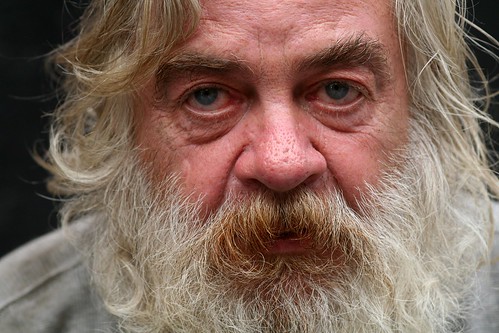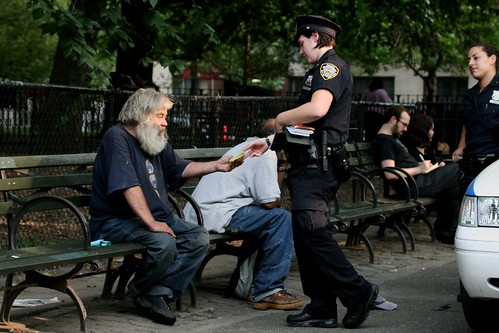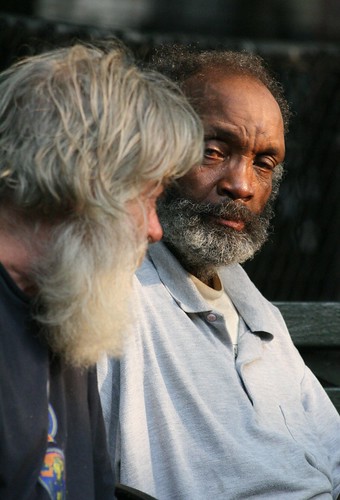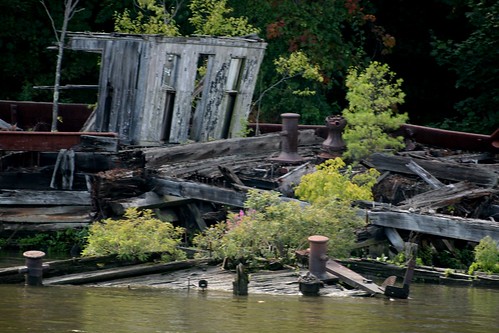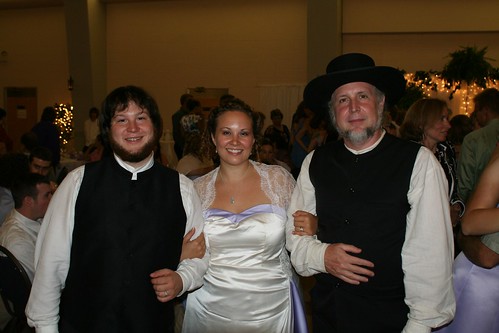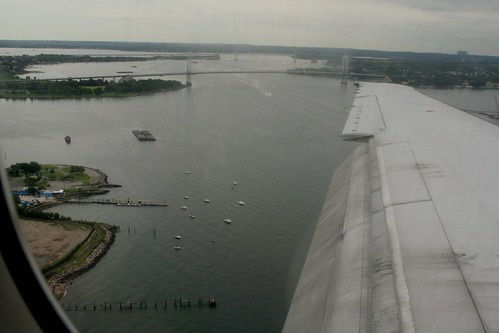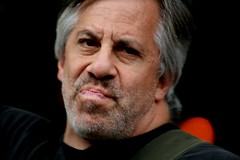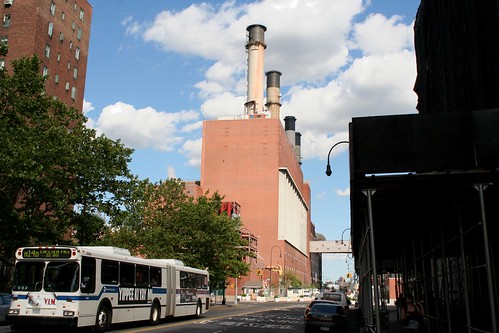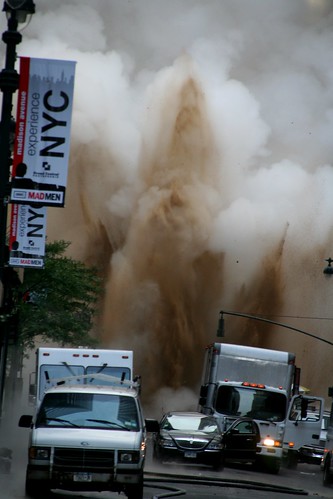Carl - A scow sailor adrift inTomkins Square Park
Tompkins Square Park: Lower East Side, New York. Today, as often happens, Lt. Corcoran told a drinker to get out of the park. And, Carl, ever the gentleman, complied with humor and a genteel wit.
Who is Carl? Carl was born in a different world, the New York of 1946 - the last days of the waterfront of Anna Christie, the world of bargies and a community who lived in sight of the city but a world away.As Carl tells it, his mother had a hard menopause, and in order to survive, his father retreated to a job on a Trap Rock Scow, a barge towed from up the Hudson River to an anchorage off Staten Island. Carl was then the sole recipient of his mother's temper, so in an act of kindness his father took him, just before puberty, to live in the aft cabin of a scow, a community of a few thousand deck hands living in a floating village anchored off the narrows. One can still see barges moored at Robin's reef, in the lee of Kitty's light, just before the ferryboat reaches Staten Island.
"My father took some two by fours and made a bunk for me, above his. I had a porthole, it was a beautiful view. I became quite a seaman, I might not have been able to splice a hawser, but I was a good sailor." He and his father, worked as did as the other deck hands of the scows, breaking ice off the lines and bending stiff lines, salting the decks, and sweating in the summers. "I lived the life before the mast, so to speak... we had no mast."
He suffered through puberty, gazing at the city from the island of scows which bumped against each other at the anchorage, separated by truck tire fenders. On occasion he and his father went ashore in a rubber dingy. In the winter they had a Franklin coal stove, but often it gave too much heat, so they cooked over two hand pumped gas primus stoves. "The company even gave us an ice box, but it was no good to us, they did not give us ice!" Rain, fog, sleet and storm, fair weather or foul, they worked the scow, living on the end of a tug boat's tow line, or anchored in the upper river or lower harbor around the stake boat, permanently chained to the anchorage -- the center of the scow sailor's community. 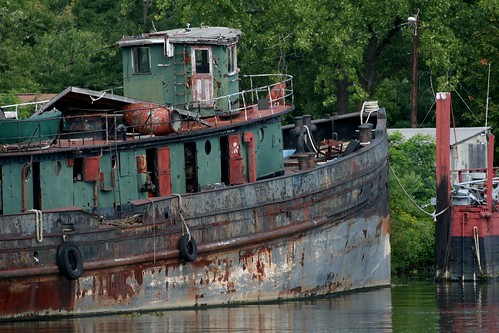
An 1890s tug - a ghost of Carl's childhood.
Then one day, that world died. The tug boat companies tore the cabins off the scows and had their own crews take over.
Up the river for ever

The new world slips down river.
A world ended, and tug boat men had to board scows in rough weather, sometimes paying for the new deal with their lives. And so, the 1950s turned into the 1960s, and there was no place for the scow sailors of New York.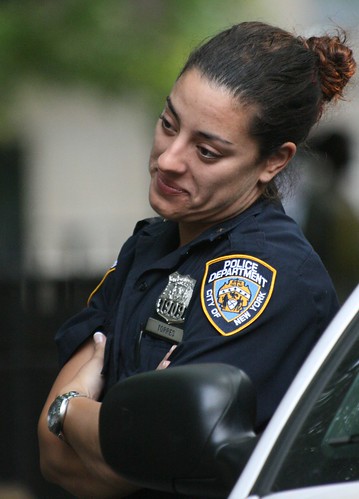
Officer Torres tries to keep supress a smile around Carl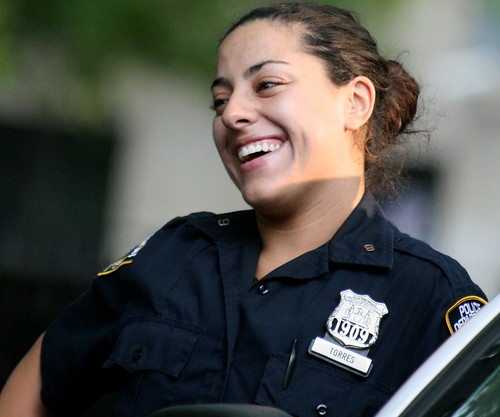
The officer gives in to Carl's humor
Tonight, this gentleman, who still dreams of life with his father in the cozy cabin of the Trap Rock Scow, sat in the park confronted by the police car. Lt. Corcran commented on his long hair. "Yes, you are right, I do need a hair cut. Thank you for the concern... I will get a hair cut... Yes, I will not lie to you, I AM drunk. I hope you only give me a ticket, as I don't have my ID with me today. I have to leave the park as well? Well, I suppose I do if I need to get a hair cut... So, I will leave ... and rape a barber." This brought laughter to the two officers out side the car, I could not see Lt. Corcoran response ... and Carl rose and walked slowly out of the park. Few in our neighborhood know where his journey started. 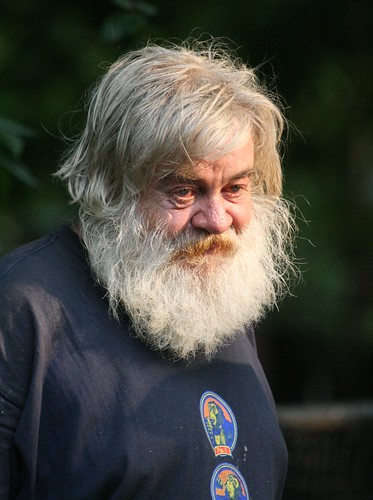
And Carl leaves the park again
All photos Lorcan Otway - all rights reserved
